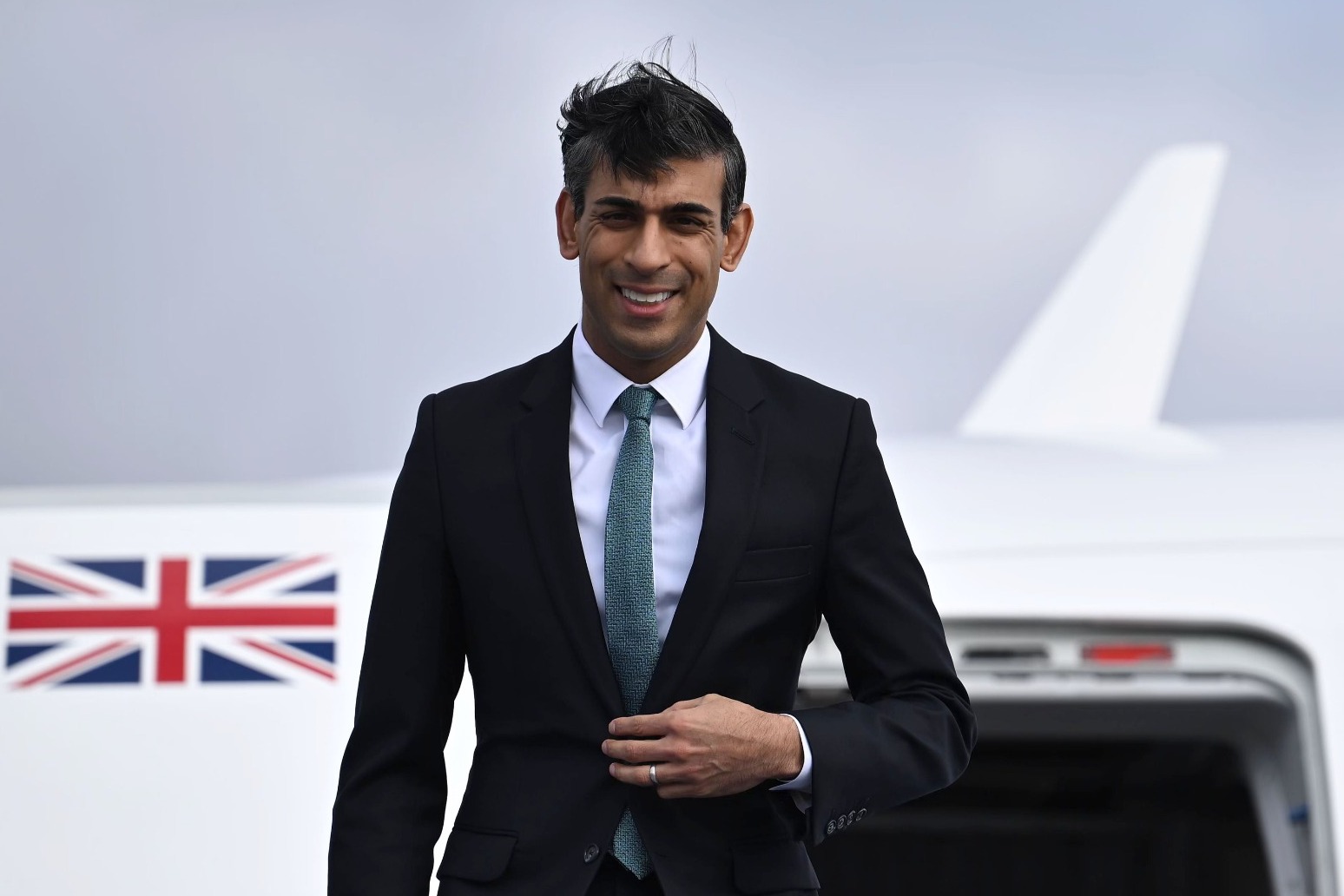
UK and France to agree to develop precision strike weapons at Paris summit
Rishi Sunak and Emmanuel Macron are expected to sign off on the UK and France collaborating to develop precision strike weapons to combat Russian aggression.
As well as the deal on weapons, the two leaders are also set to agree on working more closely on training Ukrainian marines and supplying weapons to Kyiv during a UK-France summit in Paris on Friday.
The Prime Minister said the West faced “unprecedented threats” and that he and his French counterpart wanted to “fortify” Nato so the defensive alliance is “ready to take on the challenges of the future”.
During their talks at the Elysee Palace, which will include discussing a new deal on tackling unlawful migration, Downing Street said the Prime Minister and the French president would recognise Russia as posing the biggest threat to both European and global security.
Speaking ahead of the summit in the French capital, the Prime Minister said: “Our deep history, our proximity and our shared global outlook mean that a firm partnership between the UK and France is not just valuable, it is essential.
“From tackling the scourge of illegal migration to driving investment in one another’s economies, the work we do together improves the lives of each and every person in our countries.
“Beyond that, the UK and France also have a privileged role as defenders of European and global security.
“As we face new and unprecedented threats, it is vital that we fortify the structures of our alliance so we are ready to take on the challenges of the future. That is what we will do at the UK-France summit today.”
As part of their discussions, the Prime Minister and the president are expected to give the go-ahead to enhanced UK-France military co-ordination, including agreeing to scope the co-development of “next-generation deep precision strike weaponry”, No 10 said.
Officials said the allies hope the project produces the kind of long-range capability that Nato needs to “protect against the growing threat from Russia”.
The pair will also take steps to bolster Ukraine in its fight back against Russian president Vladimir Putin’s troops, with agreements on supplying weapons to Kyiv and working jointly to train Ukrainian marines.
Mr Sunak announced in February, during Ukrainian president Volodymyr Zelensky’s visit to Britain, that the UK would start to train Kyiv’s marines and pilots.
No 10 said an accord on further joint UK and French training could see thousands more Ukrainians brought to battlefield readiness.
They will also discuss what Nato members can do to provide Ukraine with long-term defence capabilities.
Their attention will turn to the Indo-Pacific, a region the UK has already agreed to “tilt” its foreign and defence policy towards.
Officials said the UK and France, the European nations with the largest presence in the region, view security in the Indo-Pacific as “indivisible from that of Europe”.
Part of a deal on increasing allied activity in the Indo-Pacific will include establishing France and UK as the “backbone” to a permanent European maritime presence there.
The approach will include co-ordinating regular deployment of France’s Charles de Gaulle aircraft carrier and the UK’s HMS Queen Elizabeth and HMS Prince of Wales carriers across the region.
The Prime Minister’s official spokesman said the agreement on collaborating in the Indo-Pacific was about “responding to the challenge posed by China”.
Mr Sunak is due to announce an update to 2021’s integrated foreign and security review on Monday during a visit to the US, with new wording reportedly expected on Britain’s approach to Beijing.
In a sign that Mr Sunak is looking for closer collaboration with Europe on security, he has also agreed for Britain to host the fourth meeting of the European Political Community next year.
Proposed by Mr Macron and set up in the wake of the Kremlin’s assault on Ukraine, its first meeting in Prague last year was attended by the UK, European Union, Ukraine, Moldova, Georgia, the Western Balkan and other nations including Turkey.
Mr Sunak’s predecessor, Liz Truss, had been sceptical about the need for a multilateral forum, but the UK’s decision to host a session in 2024 will be read as a change in attitude by Downing Street’s current incumbent.
Cabinet ministers – including Defence Secretary Ben Wallace, Foreign Secretary James Cleverly and Home Secretary Suella Braverman – will also attend the UK-France summit to meet with their counterparts.
It is the first time the summit has been held since Theresa May was prime minister in 2018, with cross-Channel relations turning frosty during Boris Johnson’s premiership.
The talks on defence also come after a row about the trilateral Aukus pact, which saw the UK and US agree to assist Australia in building nuclear-powered submarines.
The deal angered Paris due to Australia choosing to renege on a deal agreed previously between the two nations on supplying Canberra with diesel-powered submarine vessels.
Published: by Radio NewsHub